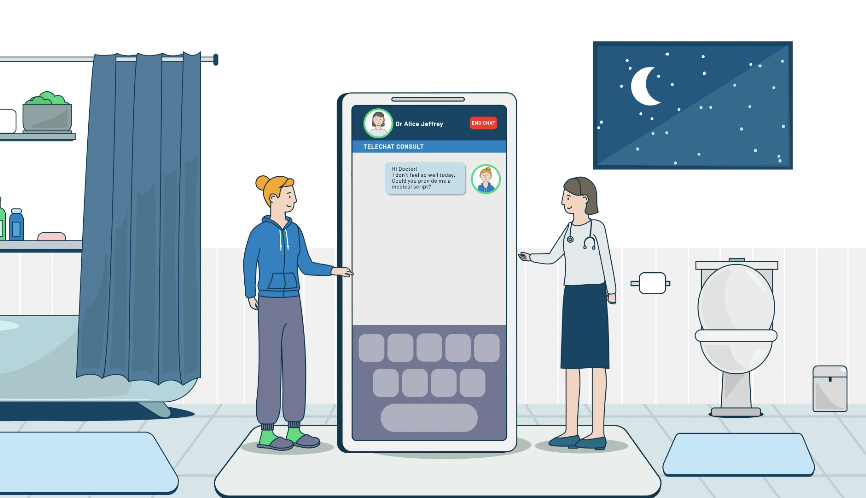As the number of COVID-19 cases rises in Australia, more GP medical practices are looking for innovative ways to ensure continuity of business, while keeping their staff and patients safe
During this pandemic, the government has recognised telehealth as a critical tool in protecting the wellbeing of patients and doctors.
The federal health minister has been rapidly increasing access to telehealth services in response to the COVID-19 pandemic. On 13th March new MBS items were applied to high risk patients and those diagnosed with COVID-19 or in self-isolation. Then new items enabled “at-risk” GPs to bulk bill telehealth for all consultations with their patients in a step to protect the vulnerable members of our medical workforce.
From 30th March, the federal government will be expanding the eligibility criteria for all patients, with or without COVID-19, to receive funded access to a general practitioner or medical specialist via a telehealth platform during the COVID-19 health emergency. As patients adopt self-isolation and even face imminent lockdown, the remote functionality of telehealth apps is attractive to minimise the risk of exposure to COVID-19 whilst seeking the clinical support they need.
However many doctors have minimal experience with telehealth and transitioning to this new medium to conduct health care can be a challenge. The move to telehealth results in the need to establish new processes and protocols within the practice and also for the doctor to have a strong understanding of how and when it is clinically appropriate to consult via telehealth.
While some medical practices are opting to simply call the patient and conduct the consult over the phone, this creates an administrative burden for the practice. For example, if a prescription is issued, it must be posted to the patient or sent electronically via encrypted email. There may be a delay in the patient accessing the medication or a costly and burdensome process for the practice staff.
Platforms such as Medinet Australia are available to medical practices to provide telehealth services with no administrative follow up post consultation. Via Medinet, GPs can consult with their patents and mid-consultation issue prescriptions, medical certificates, pathology referrals, specialist referrals and more. These medical documents are available in the patient’s app immediately post consultation. Medinet then manages the process on behalf of the GP to ensure the patient has a seamless patient experience. Patients can pick up the medication from their local pharmacy (or have it delivered, in limited areas), or print or email other medical documents directly from the app.
If any patients want to speak to a GP to be screened for COVID-19, Medinet also has a dedicated feature for coronavirus assessments. The patient answers the national triage protocol criteria for suspected COVID-19 infection, which is provided as a health summary to the GP at the commencement of the consultation. If the GP determines it clinically appropriate, the GP can then generate a pathology referral which the patient can immediately access. Medinet then provides the patient with a list of collection centres and drive through clinics according to their place of residence.
Screening assessments via telehealth such as Medinet are an effective way for GPs to allay the anxiety and panic of their patients, while still keeping their staff and other patients safe.
The fact that the screening and consultation are online also mitigates the growing issue medical practices are facing, with some patients not divulging their full medical history before the consultation to ensure they can speak with a GP and are not turned away.
Tess van der Rijt is the founder and CEO of Patient Connector, a company recently acquired by Medinet.
Sponsored by Medinet Australia. For more information, CLICK HERE



